Advancing Racial Equity &
Social Justice at UH
A Year in Review
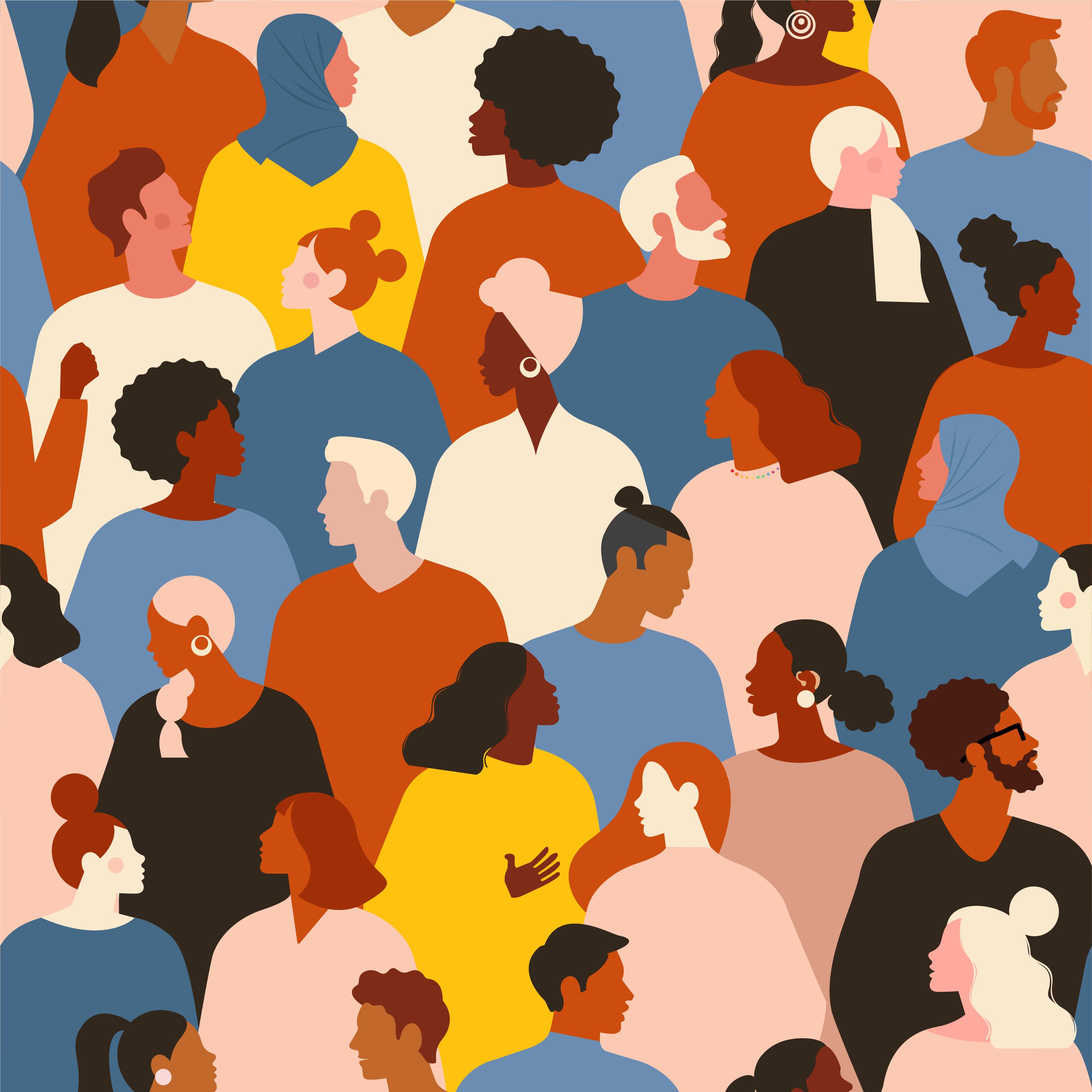
On May 25, 2020, George Floyd’s life was senselessly taken from him as a Minneapolis police officer kneeled on his neck for nine minutes and 29 seconds. The cell phone footage of his shocking death went viral, and a world forced to stay home due to the pandemic couldn’t escape the news. It was gut wrenching.
At the University of Houston, President Renu Khator launched a series of initiatives, calling for UH to do more than just lament George Floyd – she urged everyone within the UH community to become a part of the solution. “History has presented us with an opportunity to be an agent for transformation, and we must make our most sincere effort,” she said.
During that summer, the President outlined several action items, including instructions for all units to initiate dialogues on race and racism and ways to address such problems, to present national thought leaders about race to speak on campus, to fund UH researchers to study racism-related issues and to create a Racial Equity and Social Justice (RESJ) Committee. Leadership across the University responded immediately.
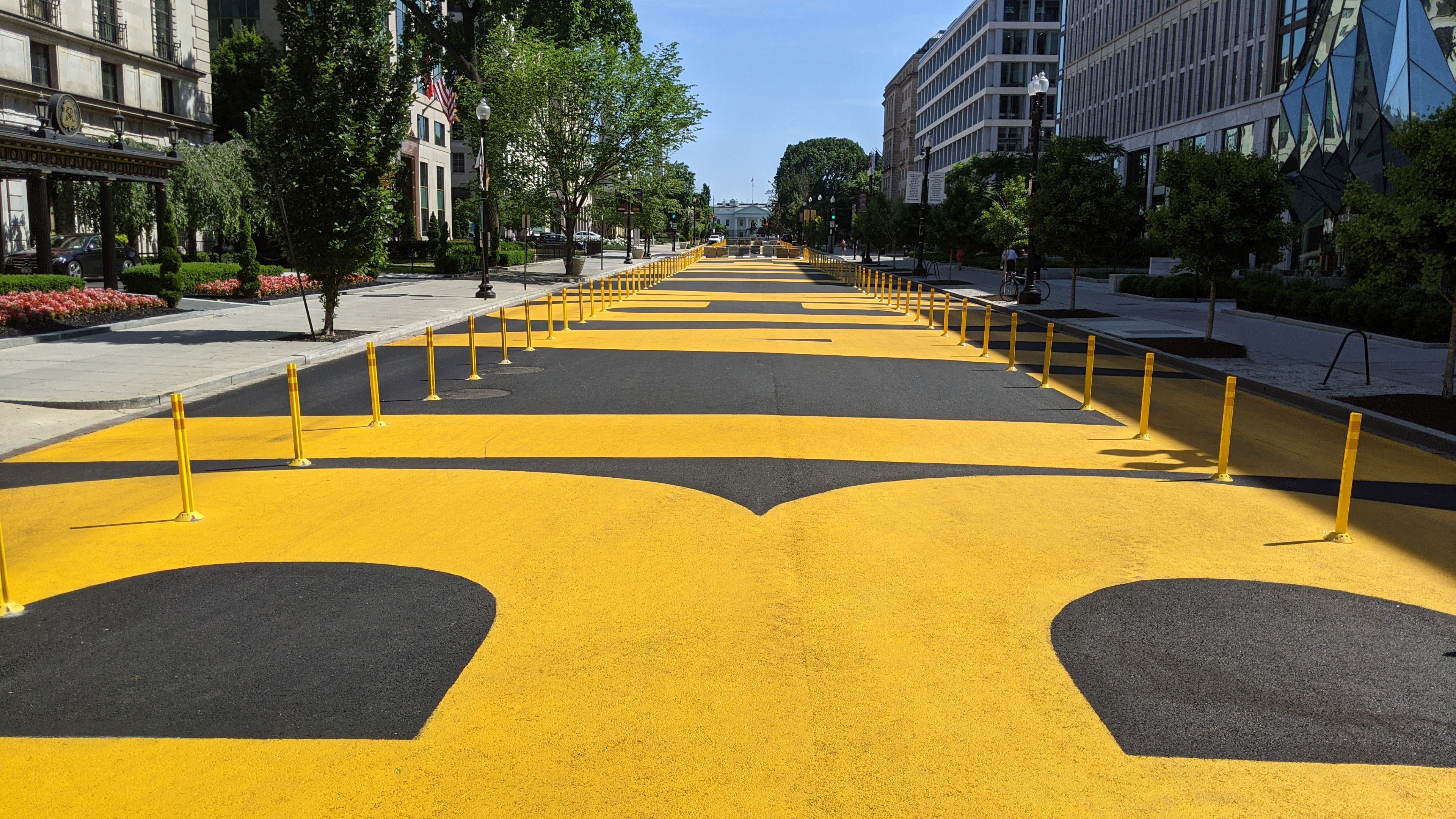
Black Lives Matter Plaza two blocks from the White House in Washington, D.C.
Black Lives Matter Plaza two blocks from the White House in Washington, D.C.
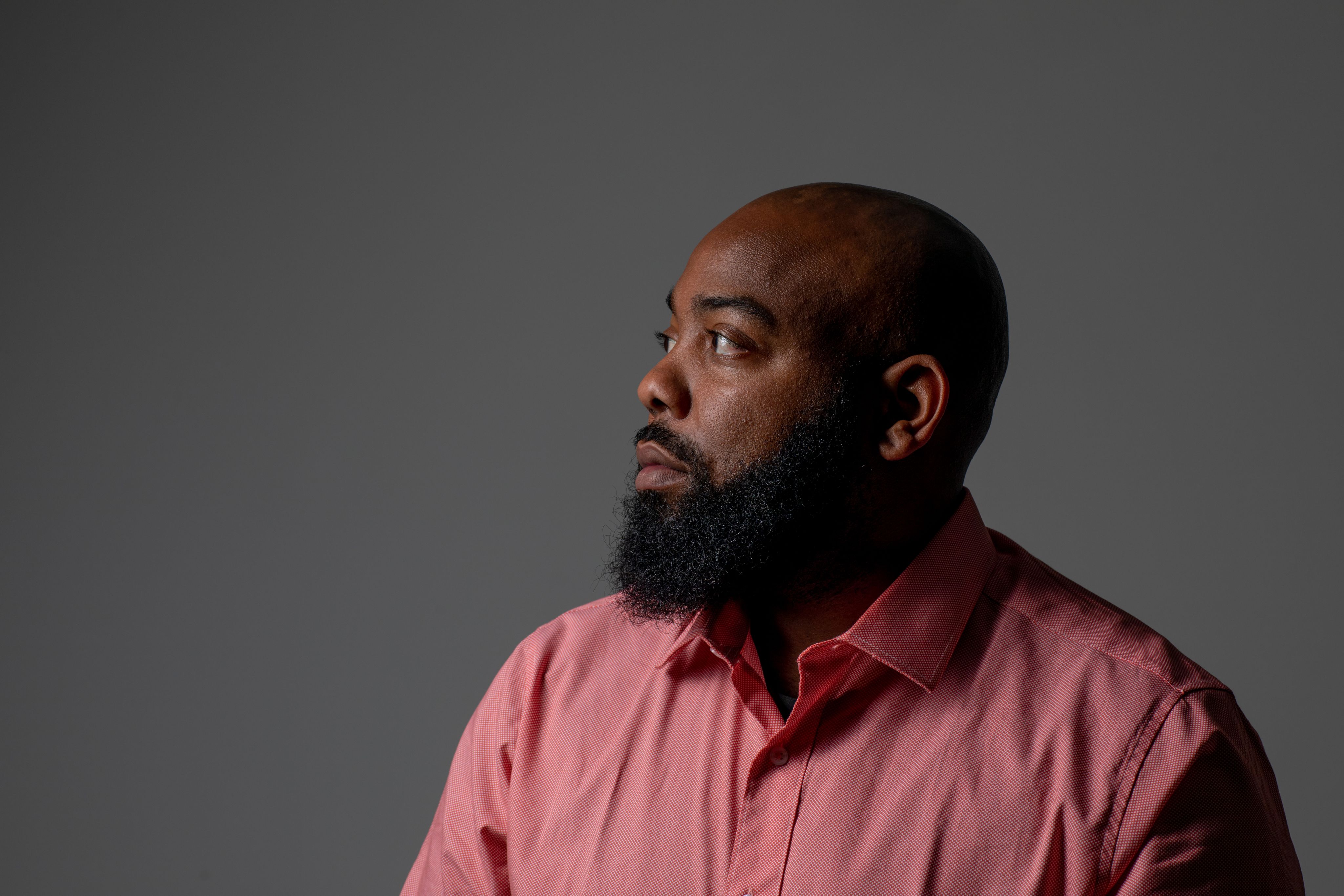
Varselles Cummings
Varselles Cummings
A Time to be Heard. A Time to Learn.
The Center for Diversity and Inclusion hosted two virtual forums on racial justice, one for students and one for faculty and staff. The team presented a workshop on how to have workplace conversations about race and provided diversity and inclusion training to more than 400 student-athletes.
Upon request, the center also conducted over 20 departmental conversations or consultations on race. “I began by giving a historical context to race and racism in America,” said Varselles Cummings, director of the Center for Diversity and Inclusion, who led several of the workplace conversations. Cummings educated attendees on systemic racism measures such as redlining, which kept Black families from buying homes in white neighborhoods through discriminatory lending practices. He also detailed the emotional trauma that Black people experience from injustices and took questions from attendees.
Some UH leaders also offered voluntary training on topics such as implicit bias or held summer reading programs featuring race and social justice literature. Several colleges across campus began lectures and panel discussions on various aspects of race and social justice, including the Graduate College of Social Work, UH Law Center, College of Education and the Kathrine G. McGovern College of the Arts. The College of Liberal Arts and Social Sciences (CLASS) launched a yearlong monthly lecture series covering topics such as race and mass incarceration, and anti-Asian racism and sexism. For the fall 2020 semester, CLASS also introduced a series of more than 20 courses about race and social justice.
The Office of the Provost held a series of events on race and inclusion for faculty and students. National thought leader and former South Carolina legislator Bakari Sellers spoke to the political aspects of civil rights and social justice at the provost’s Rockwell Lecture Series on Ethics and Leadership.
Social change expert Nanci Luna Jiménez facilitated a virtual “Racial Justice Healing Together” gathering for faculty, and several forums were held for the faculty Underrepresented Women of Color Coalition. Additionally, four “Faculty in Conversation: Talking About Race With Students” events took place during the summer. President Khator hosted a virtual town hall meeting titled, “The Role of Higher Education in Addressing Racism and Social Justice: A Conversation Among Houston GPS Leaders” for Houston Guided Pathways to Success partners – a consortium of 13 public universities and community colleges. The town hall included chancellors, presidents and senior leaders from all partner institutions and featured remarks by President Ruth Simmons of Prairie View A&M University.
Allocations for Advanced Solutions
In January, UH was awarded $900,000 in grants to launch the Houston GPS initiative “Equity Walk: Building a Postsecondary Blueprint for Equity in the Texas Gulf Coast Region.” The endeavor is now aligning the expertise of administrators, faculty and staff with the critical competencies, and data and information needed to advance more equitable student outcomes.
In addition, President Khator announced a $500,000 internal grant competition to address issues related to racism. A total of 15 professors received funding to study a wide range of issues such as health disparities, property law, literacy, job security and the judicial system. Scott Savage, associate professor and interim chair of sociology, received funding to research the downstream consequences of race-related managerial job insecurity.
Professor Lan Ni from the Valenti School of Communication has focused on addressing racism through monitoring and mitigation of racially motivated hate crimes that stem from social media. Ni and her research partners are developing advanced computing tools for monitoring racist and hate-crime-related accounts and groups and forming communication strategies for mitigating extremist racial content.
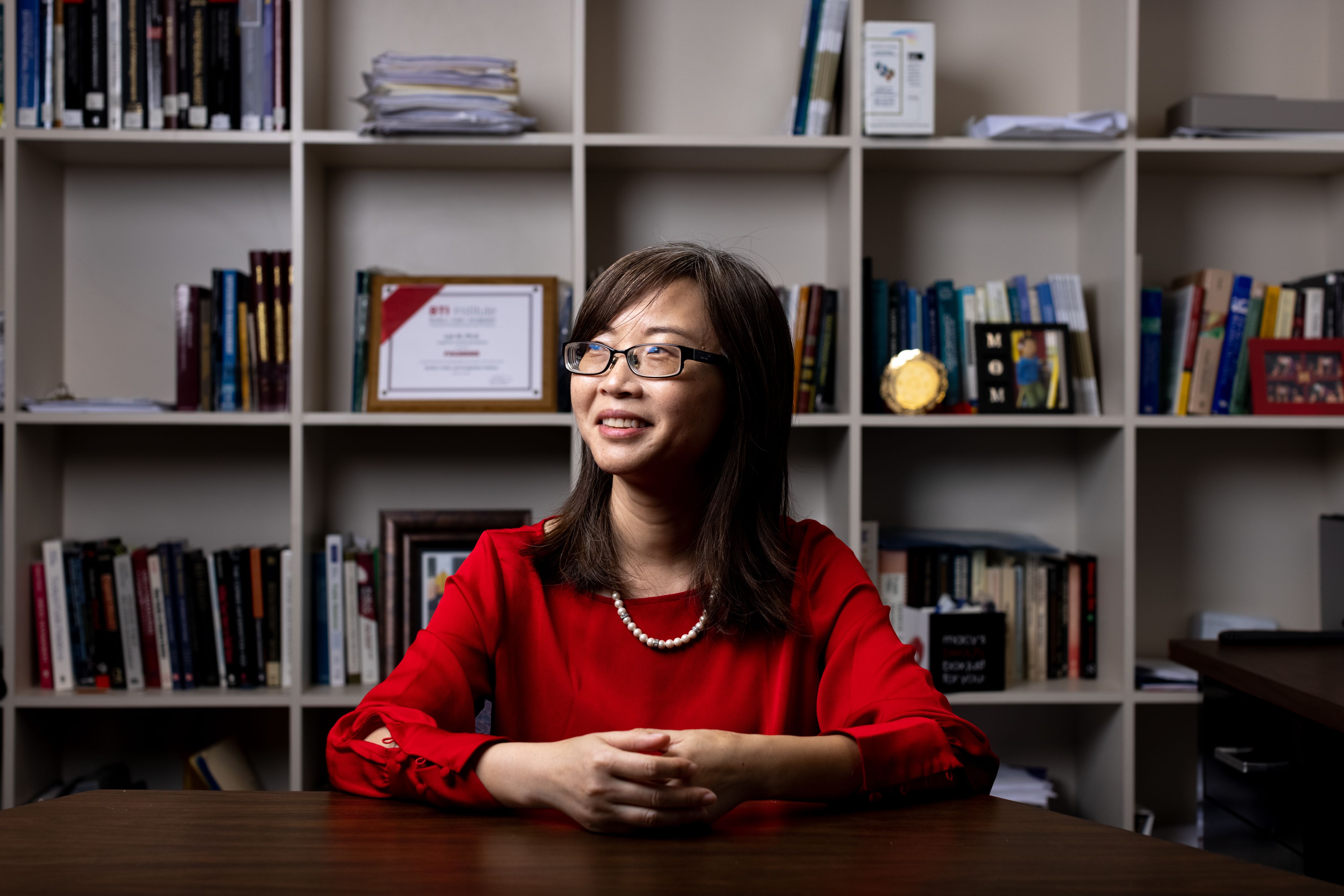
Lan Li
Lan Li
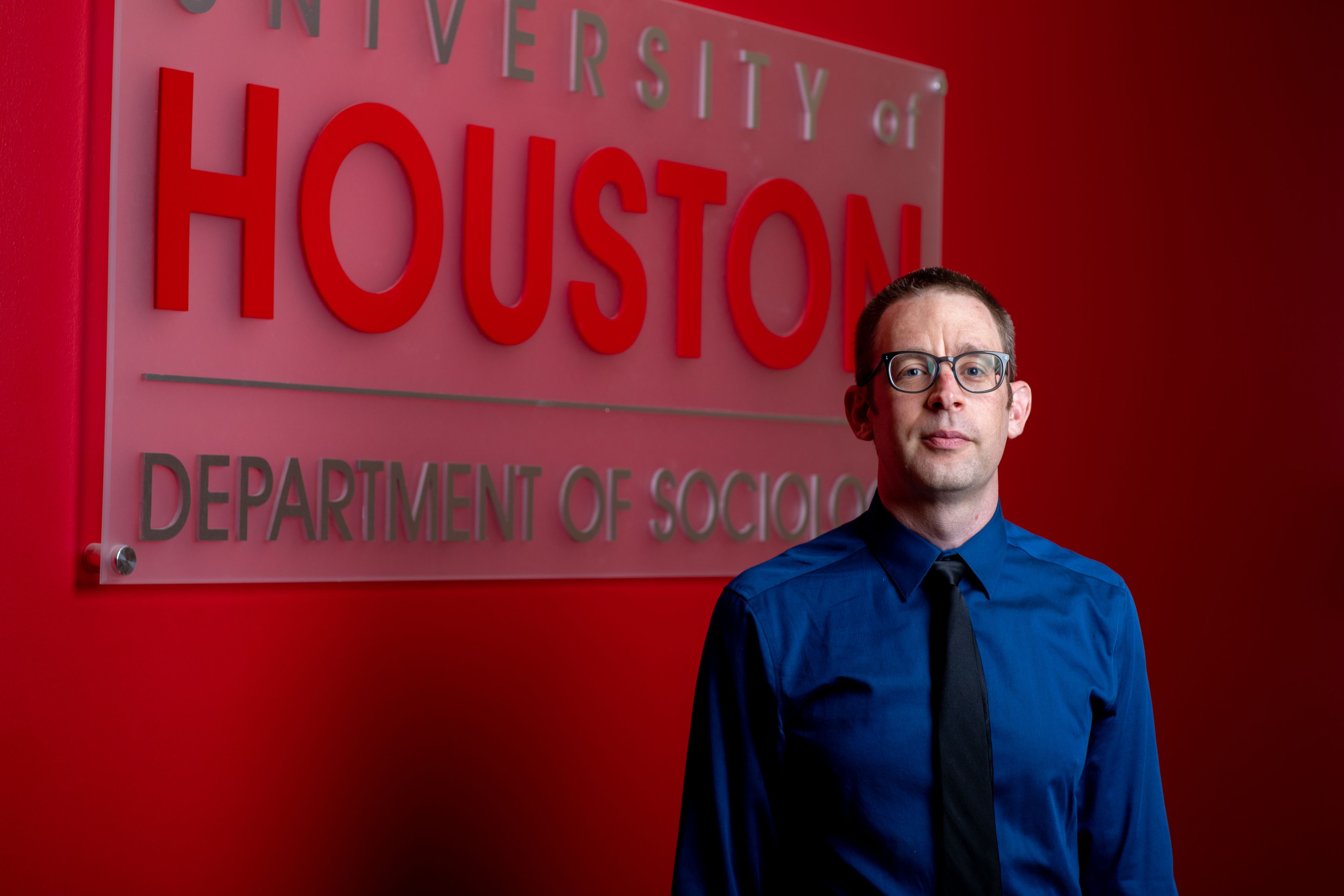
Scott Savage
Scott Savage
“History has presented us with an opportunity to be an agent for transformation, and we must make our most sincere effort.”
- President Renu Khator
Committee Called to Order
In July, the newly created Racial Equity and Social Justice Committee was tasked with assisting UH in evaluating its own policies, practices and attitudes and to identify ways UH can help identify and respond to the various challenges affecting the quality of life in Houston, the state and the world. Led by co-chairs Elwyn Lee, vice president for Neighborhood and Strategic Initiatives, and Robert McPherson, dean of the College of Education, the committee began by surveying the University’s current efforts in the aftermath of Floyd’s death, as well as preexisting programs.
“The spontaneity in the response from the UH community was remarkable,” said McPherson, citing a profusion of initiatives. And where they saw an overlap of planned programs, they helped colleges to collaborate and continue to make recommendations for unified success.
The committee also reviewed the results of three workgroups established by President Khator in response to conversations with the Student Government Association and student petitions: The UH Diversity and Inclusion Training Work Group, Freedom of Expression Work Group and UH Police Department Work Group. The committee evaluated each group’s methodology and recommendations and validated their findings. In particular, they found UH Police Chief Ceaser Moore Jr.’s response commendable. “Chief Moore has diversified the staff since he arrived and has impressive training,” said Lee. “But the students wanted more information, transparency and knowledge of how they function,” he said. Chief Moore emailed the entire UH community detailing the force’s mission – which is student success – and his department’s policies and practices, such as prohibiting chokeholds and “no-knock” warrants, while debunking some misconceptions.
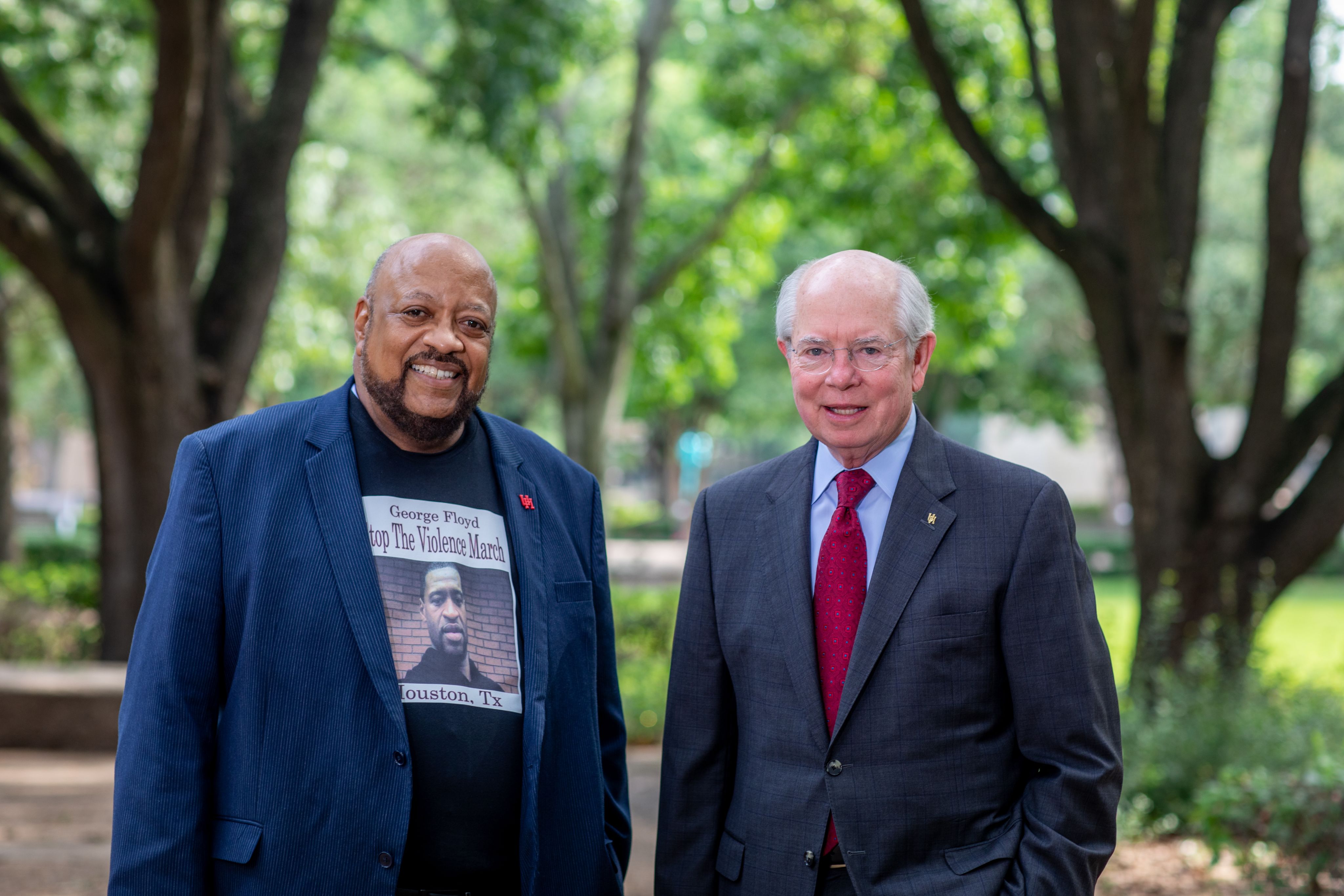
Elwyn Lee & Robert McPherson
Elwyn Lee & Robert McPherson
The RESJ Committee hosted four notable events: A town hall meeting with Harvard professor Henry Louis Gates Jr. to discuss his PBS TV special “The Black Church”; a webinar exploring strategies for diversifying the STEM field; a memorial bell-ringing ceremony on the one-year anniversary of George Floyd’s death; and a virtual forum on criminal justice, trauma and policing. In July 2021, the committee launched a diversity, equity and inclusion website – at uh.edu/diversity-equity-inclusion – that now serves as a central resource for training and self-learning resources, programs and services. The site also includes a progress report detailing the committee’s yearlong work.
Diversity in Action
The national movement for racial equity and social justice ignited protest marches across the country, and UH students were not exempt, with marches across campus in the fall of 2020 and spring of 2021.
Breaking barriers to diversity and inclusion has long been a part of the institution’s history. UH became the first major college in the South to integrate its athletic programs, was the first public university in Texas to establish an African American Studies Program, crowned the first Black homecoming queen at a predominantly white southern university, became one of the country’s first Tier One Hispanic-serving institutions and is a designated Asian American and Pacific Islander-Serving Institution.
Today’s noteworthy advancements span the campus. Prior to George Floyd’s killing, UH already had numerous racial equity and social justice programs in place. From law to health care, and social work to research, an array of colleges and programs are fighting racial inequities. Their approach focuses on the root causes and providing under-resourced communities of color with critical services and connections to resources. Faculty diversity has increased, and UH has won INSIGHT Into Diversity Magazine’s Higher Education Excellence in Diversity Award for six consecutive years. Yet, the University is committed to do more.
As President Khator said in her 2020 President’s Report, “High rankings, awards, better buildings and championships are laudable goals; however, they hold little value if the University doesn’t create a community of learners and educators who value human dignity, respect for one another and empathy for the anguish of others.”
